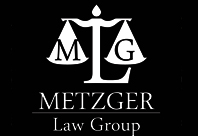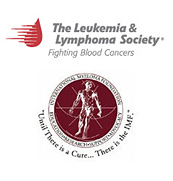Identifying the Causative Chemical
by Raphael Metzger, Esq.
The new client was employed for years in industry, working with a few hundred toxic chemical products. He was recently diagnosed with a rare disease you've never heard of. You suspect the disease was caused by the chemicals he was exposed to at work. How do you find out what chemical caused the disease?
If the client had only worked with one chemical, you would ask the employer for a copy of the Material Safety Data Sheet (MSDS) for it and you would begin researching the toxicology of the chemical to determine whether it likely caused the client's disease.
Obtaining hundreds of MSDSs and studying the toxic effects of the ingredients in each one is another matter. That could take weeks. When the client has been exposed to many chemicals, it is often best to begin investigating the disease, rather than the chemicals.
To do this, you either need a first-class medical library, or a computer with a modem and Grateful Med. No, you don't want to listen to a Grateful Dead CD while surfing the Internet. You want a software package called "Grateful Med." This is a program published by the National Library of Medicine. It can be obtained by mailing a check for $29.95 to the National Technical Information Service at 5285 Port Royal Road, Springfield, VA 22161 or faxing a credit-card order to (703) 321-8547.
After you install the program, you will have access to more than a dozen biomedical databases at the National Library of Medicine.
The most useful databases are Toxline (toxicology literature), Medline (biomedical journal articles), Cancerlit (the cancer literature), Chem-ID (dictionary of chemical compounds), HSDB (Hazardous Substances Data Bank), CCRIS (Chemical Carcinogenesis Research Information System), IRIS (Integrated Risk Information System), and RTECS (Registry of Toxic Effects of Chemical Substances).
To find out what the client's disease is, you can search for a recent review article in Medline. A search or two in Toxline will reveal the known causes of the disease. Searches that will find the best articles are the name of the disease and "etiology," "epidemiology," "occupation," or "causality."
In just a few minutes you will have the key articles about the disease and its known causes. You can either print out abstracts of the articles, or download them to a file on your hard disk and start your own database.
Once you have identified the known causes of the disease, you can ask the client if he worked with the chemicals you have identified, and then ask the employer for the MSDSs for those products.
Using Grateful Med, you can have a handle on the case in an hour, rather than trying to obtain hundreds of records from the client's employer and pouring through them into the wee hours of the night. Now you know why they call it Grateful Med!
Raphael Metzger is the principal of the Metzger Law Group, a Professional Law Corporation. His firm concentrates its practice on occupational cancer, lung disease, and toxic organ failure cases. The firm’s offices are located in Long Beach,




